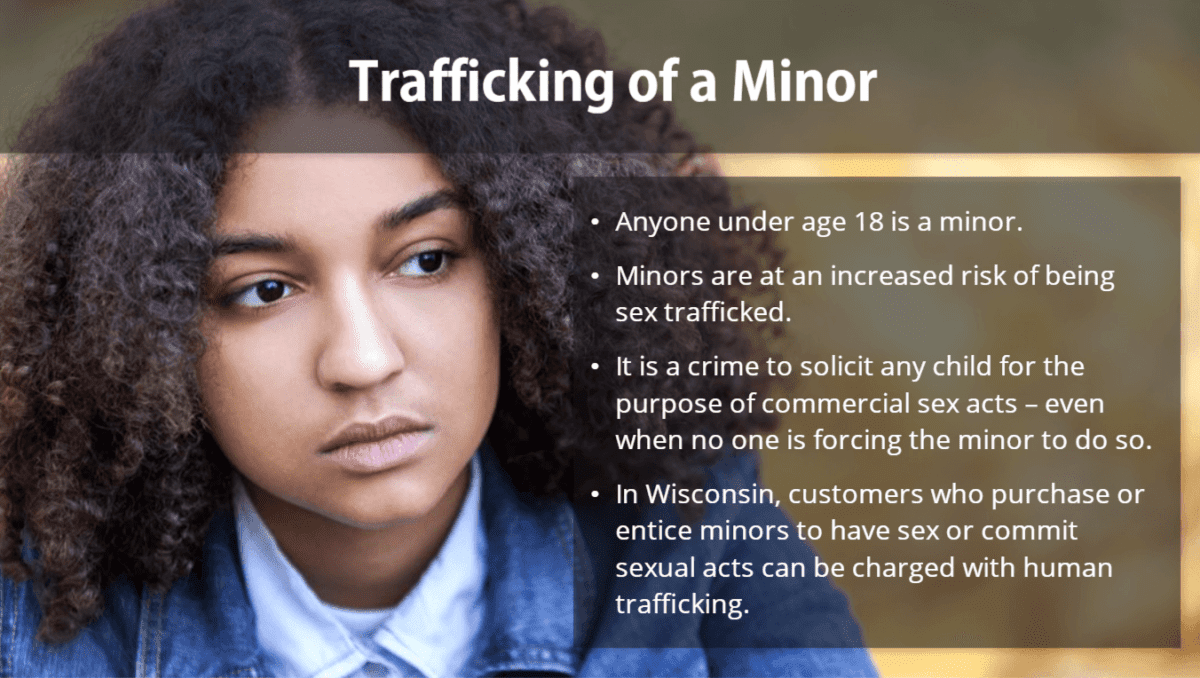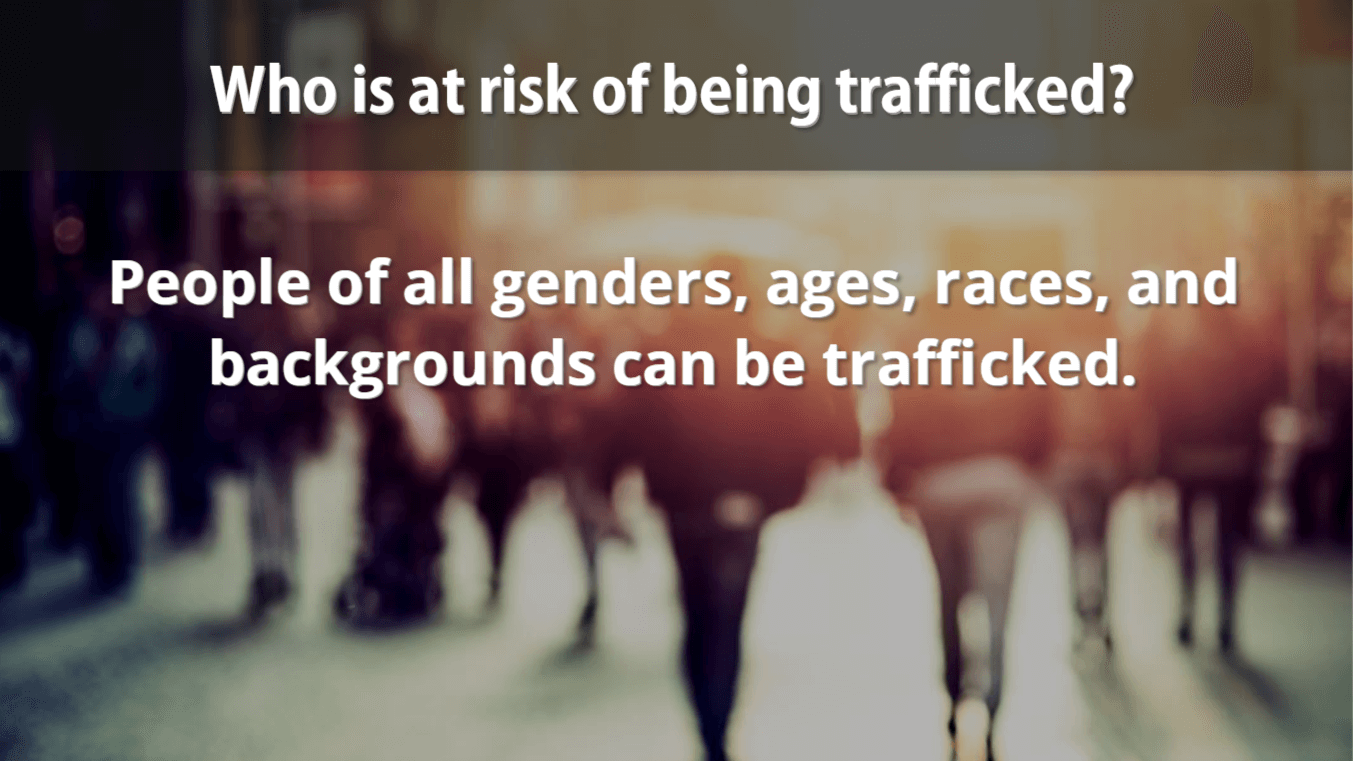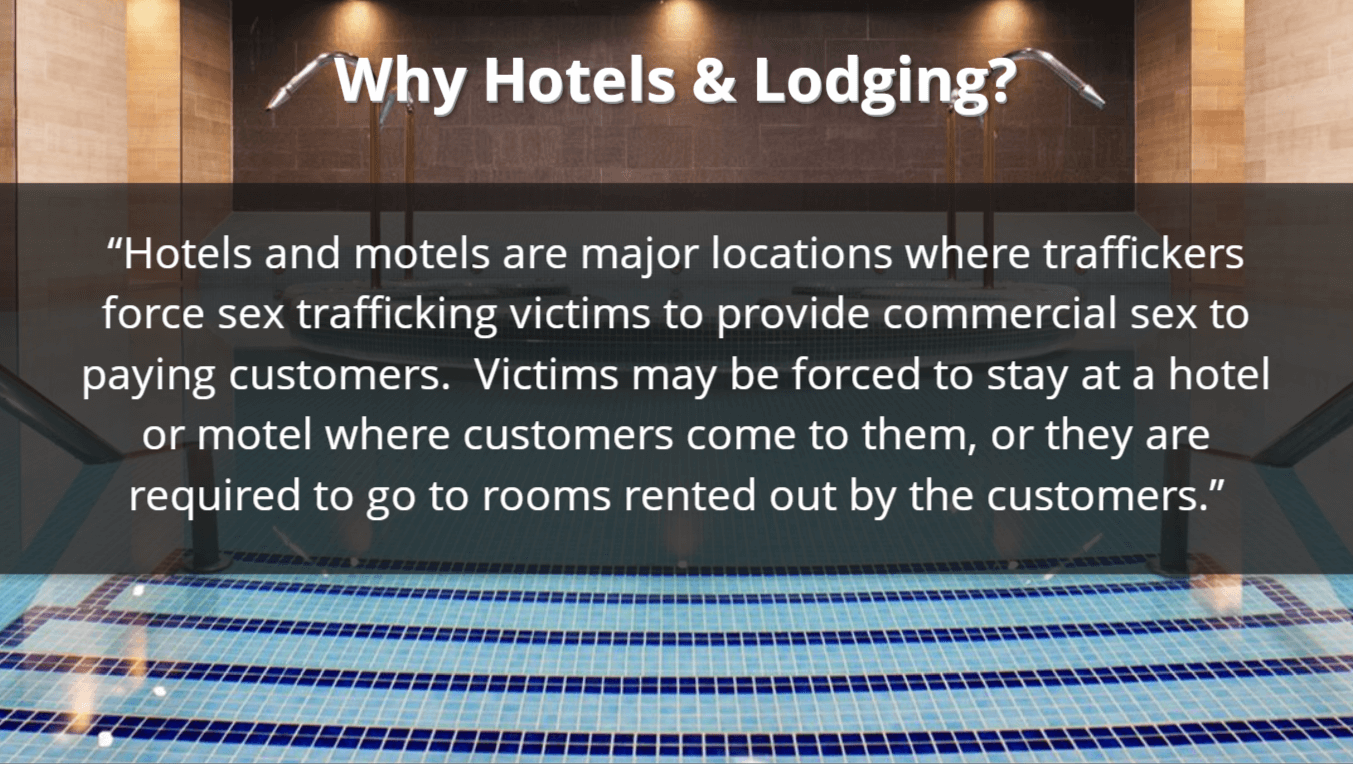
In the past decade the National Human Trafficking Hotline has received nearly 1,500 calls involving trafficking in Wisconsin, whether for sexual exploitation or forced labor. Human trafficking occurs in many settings, but the hotel industry has a unique opportunity to identify and report such abuse.
That’s why the Wisconsin Department of Children and Families and the Wisconsin Department of Justice partnered with the Wisconsin Hotel and Lodging Association and University of Wisconsin-Madison Continuing Studies to create webinars for hotel staff. They provide an overview of human trafficking and identify signs of trouble at lodging properties.
The webinars are available in English, Hmong, and Spanish, and in video and interactive formats. Developed by Nikki McIntosh at Continuing Studies’ office of Educational Innovation Program Development, they effectively introduce the concepts and provide a clear course of action. Viewers learn that people of all genders, ages, races, and backgrounds can be trafficked, and that traffickers often rely on legitimate business—including hotels—to commit their crimes.
“Hotel staff are in a position to spot the signs of trafficking through their interactions with guests, whether during check-in, delivering room service meals, or providing housekeeping services,” says Joy Ippolito, anti-human trafficking coordinator for the Department of Children and Families. “By training hotel staff on the signs of trafficking, they will be more prepared to spot it and report it to hotel management or the local authorities.”
‘What if I am right?’
In the webinars, housekeeping, maintenance, and room-service staff learn to look out for guests who constantly use “Do Not Disturb” signs, refuse cleaning services for multiple days, and reserve multiple rooms. Concierges, bellmen, front desk staff, security staff, and valets learn to suspect those who pay for their rooms with cash or preloaded credit cards. Food and beverage staff learn to keep an eye on individuals who ask patrons for money or who take cash and receipts left on tables. 
The webinars urge hotel staff to refrain from intervening personally when they suspect human trafficking. Instead, they should report the behavior to law enforcement, even if they think they might be misinterpreting the situation.
“People hesitate to report suspicious behavior, thinking, ‘What if I am wrong?’” the webinars say. “Instead think, ‘What if I am right?’ Your suspicion might bring assistance to a person who needs help.”

Human Trafficking 101
While the Department of Children and Families and the Wisconsin Department of Justice created the content, UW-Madison Continuing Studies helped bring it to life.
“We asked for engaging visuals so that the training would feel interesting and relevant, and they delivered that perfectly,” says Ippolito. “Continuing Studies also played a major role in getting the content translated and recorded into Spanish and Hmong, the two languages besides English that were identified as being most prevalent among hotel workers.”
The Department of Children and Families will again collaborate with Continuing Studies on a “Human Trafficking 101” curriculum this spring, informed by the work of Wisconsin Anti-Human Trafficking Task Force. It will be geared toward service providers who may come into contact with human trafficking cases.
For more information, contact the Wisconsin Department of Children and Families, 608-422-7000, dcfweb@wisconsin.gov.